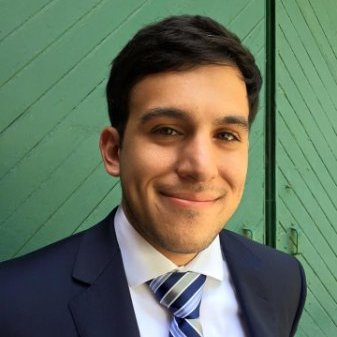Trump Appoints Tillerson as Secretary of State
After weeks of speculation and a highly public interview process, President-elect Donald Trump has selected current Exxon Mobil CEO Rex Tillerson to be named Secretary of State.
Secretary of State: Exxon Mobil CEO Rex Tillerson
Published by The Lawfare Institute
in Cooperation With

After weeks of speculation and a highly public interview process, President-elect Donald Trump has selected current Exxon Mobil CEO Rex Tillerson to be named Secretary of State.
Secretary of State: Exxon Mobil CEO Rex Tillerson
The Department of State takes the lead in shaping United States foreign policy and is involved in almost all U.S. negotiations with foreign powers. It is currently at the center of a dizzying array of issues confronting the United States: a worsening humanitarian crisis in Syria, continued contestation over territory and maritime rights in the East and South China Seas, a festering conflict with Russia in Eastern Europe, and questions over the future of U.S. deals with Iran and Cuba, just to name a few. The Secretary of State is in charge of a global network of approximately 307 embassies and consulates and a key advisor to the President on all foreign affairs and national security issues. Secretary of State nominees require Senate approval.
Every Secretary of State since at least 1900 has had some form of significant prior government experience. Since World War Two, a plurality (seven) previously worked at the Department of Defense, either as a senior member of the military or in a policy position. The remaining thirteen had a diversity of experiences, almost all implicating foreign affairs in some way (e.g., Department of State, Senate Foreign Affairs Committee, National Security Council, Treasury). The only person to not hold a senior foreign policy position before becoming Secretary of State in the post-war era was William Rogers, who served in the Nixon administration. Rogers had, however, previously served on two United Nations panels.
Rex Tillerson would break this tradition. Tillerson has spent his entire career at Exxon Mobil, the world’s largest publicly traded petroleum and petrochemical company. Though he has never worked in government, Tillerson does have extensive experience with international business negotiations. He served, for example, as President of Exxon Yemen and Neftegas Limited (a subsidiary responsible for Exxon’s holdings in Russia and the Caspian Sea). Tillerson is also a trustee of the Center for Strategic and International Studies. According to Politico, former Secretary of State Condoleeza Rice and Former Secretary of Defense Robert Gates both recommended that Trump consider Tillerson for the position. Former Secretary of State James Baker III, who served in the first Bush administration, was also a strong proponent. (For a defense of Tillerson’s qualifications for Secretary of State, see this statement from Suzanne Maloney of the Brookings Institution.)
Tillerson has not spoken on most of the international concerns currently facing the United States. This past May, however, he did tell Exxon Mobil’s annual shareholder meeting that “addressing the risk of climate change is a global issue.” Since 2006, when Tillerson became CEO, Exxon Mobil has also acknowledged the science underlying climate change, supported a carbon tax, and expressed support for the Paris climate agreement (which Trump has widely criticized). For more on Tillerson’s thoughts on energy security, see this speech given in 2012 at the Council on Foreign Relations CEO Speaker Series.
Tillerson’s past connections to Russia, however, may be a source of contestation during his Senate confirmation: when the Trump camp floated Tillerson over the weekend, they were met with sharp pushback from senators on both sides of the aisle on Tillerson's ties to the Kremlin, including from John McCain and Marco Rubio. In 2011, Tillerson struck a deal with the Kremlin that would allow Exxon Mobil to drill in Russia’s Arctic. The deal was subsequently blocked by U.S. sanctions against Russia, which Tillerson has criticized for failing to consider “broad collateral damage.” Notably, Russian President Vladimir Putin also awarded Tillerson the Order of Friendship in 2013.





